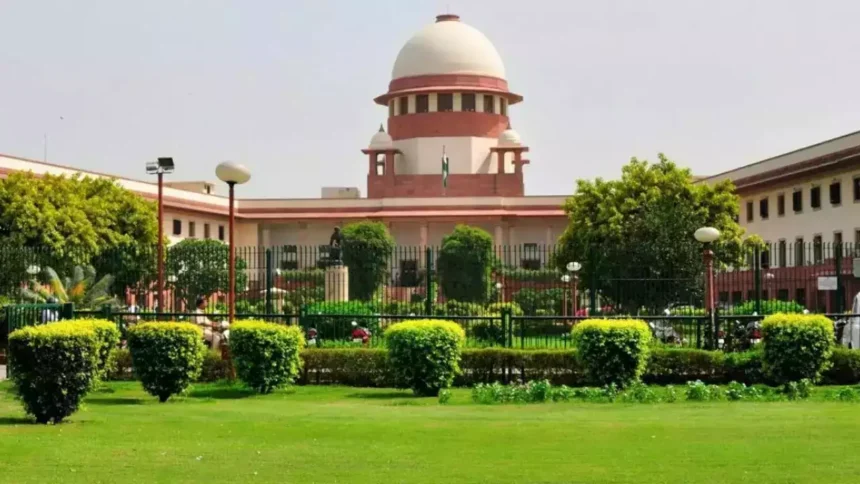Upholding Constitutional Values: A Call Beyond Celebration

- 23 Feb 2024
Why is it in the News?
While SC judgments on electoral bonds and Chandigarh mayoral election are welcome, they ought not to merely be an episodic legitimisation of the façade of constitutionalism.
Recent Indian Supreme Court Rulings Questioning Government Actions:
- Invalidating the Electoral Bonds Scheme: The Supreme Court ruled the electoral bonds scheme unconstitutional, posing a challenge to a major government initiative concerning political funding.
- AAP Victory in Chandigarh Mayoral Election: The Court affirmed the Aam Aadmi Party's (AAP) victory in the Chandigarh mayoral race, overturning a local electoral outcome and directly challenging administrative actions in the election process.
Analyzing the Supreme Court's Balancing Act:
- Observe the Executive's Activities to Sustain Its Own Lawfulness: The Supreme Court of India, as the highest judicial authority, bears the weighty responsibility of interpreting and upholding the Constitution.
- In fulfilling this duty, it frequently engages in a precarious balancing act, striving to negotiate the intricacies of challenging executive decisions while safeguarding its own credibility.
- This intricate dance between the judiciary and the executive mirrors the broader constitutional framework, wherein checks and balances play a pivotal role in preventing the dominance of any single branch.
- Significance of Upholding Legitimacy: A fundamental aspect of this delicate balancing act is the imperative to avoid antagonizing the executive to the extent that it imperils the Court's legitimacy.
- The Court recognizes that maintaining this delicate equilibrium is indispensable for the institution’s continued existence.
- A collapse in the Court's credibility could undermine the very fabric of the constitutional order it endeavours to uphold.
- This consideration often influences the Court's deliberations, prompting careful consideration of the potential ramifications for its stature.
What are the Issues with the Court's Balancing Act Against the Executive?
- The Court grapples with the intricate balance between its roles as a legal arbiter and guardian of constitutional integrity, particularly when confronted with executive actions that may encroach upon constitutional principles.
- Recent decisions, like invalidating the electoral bonds scheme, highlight the Court's assertion in safeguarding democratic norms while cautiously avoiding confrontation to preserve its legitimacy.
- However, concerns arise when the Court's reluctance to challenge the executive overshadows its commitment to constitutional values, potentially legitimizing authoritarian agendas.
- Maintaining a facade of constitutionalism can lead to questions regarding the Court's consistent commitment to curbing executive power.
- The Court must uphold constitutional principles robustly, even if it means challenging the executive's authority uncomfortably, to ensure justice and democracy prevail.
- Success in this delicate balancing act lies not only in the decisions rendered but also in the Court's unwavering dedication to justice and democracy, despite formidable executive pressures.
Analysing Political Culture, Public Sentiment, and the Court's Influence:
- Disparity Between Legal Pronouncements and Public Opinion: Recent Supreme Court rulings against government initiatives, such as invalidating the electoral bonds scheme, fail to resonate as significant concerns within public sentiment, highlighting a disconnection between legal decisions and public perception.
- Normalization of Institutional Decline: The lack of public outcry over decisions challenging government actions reflects a worrying normalization of institutional decay, where issues like electoral malpractice are perceived as minor errors rather than threats to democracy.
- Aestheticization of Politics: Rather than prompting political concern, events like the Chandigarh mayoral race are often viewed as entertainment, illustrating a shallow engagement with political developments that overlook their implications for governance.
- Opposition Fragmentation and Political Dynamics: The Opposition's fragmented state impedes its ability to leverage judicial decisions against the government, weakening efforts to hold the ruling party accountable and allowing it to diminish the significance of adverse legal rulings.
- Courts' Influence on Political Culture: While the Court delivers commendable decisions, it operates within a political culture seemingly immune to the erosion of democratic norms, limiting its ability to shape broader perceptions.
- Legal victories, though sound, struggle to spark the necessary public mobilization to impact the prevailing political climate.
Way Ahead:
- Embracing Civic Courage and Critical Inquiry: Amidst institutional erosion and a dearth of political engagement, there is a pressing need for civic courage, critical thinking, and a commitment to holding the government to account.
- Instances of institutional impropriety, whether through overreach, repression, or communalisation, often fail to provoke a robust public response.
- The reluctance to critically engage with such issues perpetuates a political climate where even pro-democracy decisions are seen as rare anomalies rather than normative outcomes.
- As such, the public's reception of these rulings becomes pivotal in shaping their enduring impact.
- Calling for a Reassessment of Institutional Roles: Recent legal verdicts must be part of a broader effort to challenge the consolidation of authoritarianism and communalism.
- The prevailing political climate necessitates critically reassessing institutional roles in fostering genuine accountability.
Conclusion
Recent Supreme Court rulings, while potentially positive, warrant cautious consideration amid broader institutional challenges. Navigating issues like legitimacy balancing, fragmented opposition, and institutional normalization presents formidable obstacles. The enduring impact of these decisions hinges on both public reception and the Court's steadfast dedication to constitutional principles, determining whether they signify substantive progress or fleeting glimpses of hope amidst broader democratic challenges in India.
